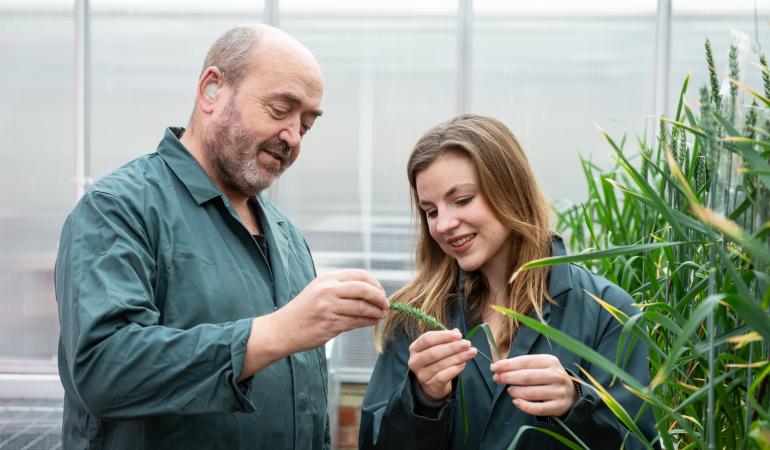
Researchers are preparing an application to the government to run a field trial of a new genome edited wheat, the first such trial to be carried out in Europe.
Scientists from Rothamsted Research have used genome editing to reduce a cancer-causing compound commonly found in toast.
Acrylamide forms during bread baking and is further increased when bread is toasted: the darker the toast, the more of this carcinogenic compound it contains.
Now the team have used genome editing to develop a type of wheat that is less likely to produce acrylamide when baked.
According to project leader Professor Nigel Halford, they are preparing an application to the UK government to run a field trial of this new wheat, starting in the autumn.
“Acrylamide has been a very serious problem for food manufactures since being discovered in food in 2002," Professor Halford explained.
Acrylamide, which causes cancer in rodents and is considered ‘probably carcinogenic’ for humans, occurs in toast and other foods that are fried, baked and roasted.
The amount of acrylamide in bread is relatively low, but it increases many-times over when the bread is toasted.
The compounds that impart colour, flavour and aroma form by similar chemical pathways, so the darker and tastier the toast, the more acrylamide it is likely to contain.
Sarah Raffan, who has just completed a PhD project to make and analyse the low asparagine wheat, will be the lead researcher on the field trial.
She said: “We’ve used genome editing to reduce the amount of the amino acid, asparagine, in the grain.
"It’s the asparagine that is converted to acrylamide during baking and toasting, so a low asparagine wheat should lead to lower levels of acrylamide, which is good news for anyone who likes their toast well done.”
The CRISPR/Cas9 genome editing technique leads to small changes in the DNA, such as the deletion or insertion of short sections of DNA, or changes to the DNA sequence.
In this instance, researchers are halting the function of a gene involved in the production of asparagine.
Despite the differences between genome editing with CRISPR/Cas9 and GM, genome edited plants are currently treated in the same way as GM under EU regulations, blocking the use of a technology that is gaining approval worldwide.
The current Defra consultation on this issue may lead to new legislation in the UK, allowing genome edited food products to be available to consumers.
Professor Halford said: “A number of methods for reducing acrylamide in food products by changing processing methods have been developed.
"Some have been successful, but they are not applicable to all food types, are often expensive to implement and may have detrimental effects on product quality."
Professor Halford emphasized that the wheat is still experimental: “It is essential that we test the wheat in field trials to see how it performs.
"If it comes through the field trial well it could be made available to wheat breeders."
